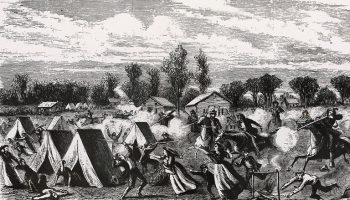
Neither all-in nor all-out: That’s exactly what the Salt Lake Tribune says concerning the attitudes of some people in the Church of Jesus of Latter-day Saints to particular observances associated with their faith, such as the wearing of mandated religious garments or abstaining from coffee and alcohol.
The article, which considers the way the impact of American culture has produced many members who identify as “relaxed but engaged” rather than as rigid adherents, features commentary by School of Arts & Humanities Dean Patrick Mason, who is even the university’s Howard W. Hunter Chair of Mormon Studies.
In this short article, that is about a Mormon “middle way,” Mason himself strikes a middle way towards “half-in” Mormons even while he points out the benefits of more fully obedient church members who “are prepared to make sacrifices for any long-term payoff.”
The article closes with his perspective around the nature of God, telling the reporter that believers’ decisions to fully participate or not finally come down to their conception of God as either requiring strict adherence or providing generous leniency to any or all.
Or, in the words of Mason’s aunt: “Will God have a person out of heaven for drinking a cup of coffee?”
Read more of the article.
Novel ideas: May be the novel dead? Irrelevant? Useless? Hardly. Actually, it’s never been a bigger factor or alive.
The novel, writes English Professor Eric Bulson in his introduction to The Cambridge Companion towards the Novel, \”prides itself on being new, ever in motion, not fixed in one location or perhaps defined by one size. That, essentially, is what makes pinning this genre down this type of daunting task.\”
To attempt that daunting task, Bulson — who edited this essay collection for Cambridge University Press — assembled a distinguished lineup of critics to actually pin down the genre's growth and evolution from the ancient origins in to the present day.

Among his contributors are David James, who argues for the novel's continuing primacy as the best medium for \”deep concentration,\” while Vilashini Cooppan and Priya Joshi consider its roles as commodity and global presence. Jan Baetens, Hugo Frey, and Jessica Pressman describe an upswing of graphic novels and the movement of the novel in the printed page towards the virtual domain of video games.
A necessity for every student of literature, Bulson’s Cambridge Companion to the Novel reminds us of the genre's abiding power even in our techno-besotted age.
Or, as Bulson himself concludes in his introduction, “D. H. Lawrence was right: 'The novel includes a future.' But it's not at all the one he could have imagined…”
Read much more about The Cambridge Companion towards the Novel.





